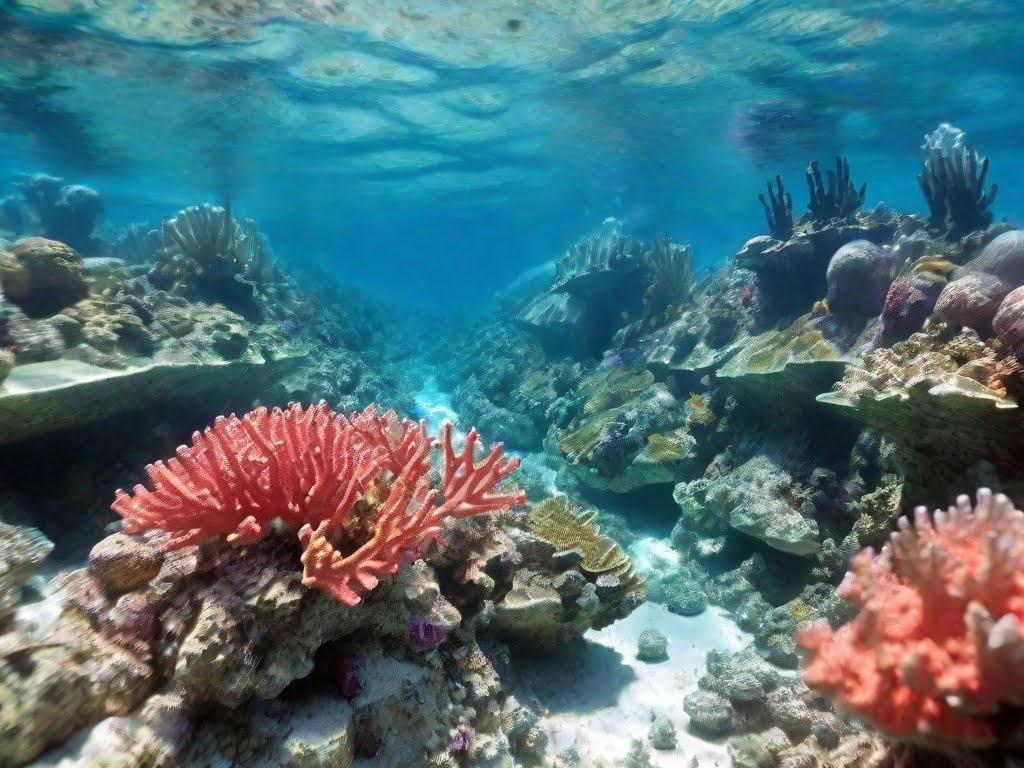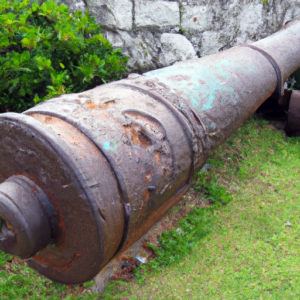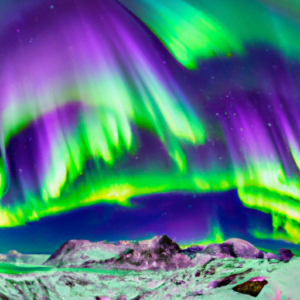Bermuda, a picturesque island renowned for its stunning natural beauty, is home to an array of unique and rare species found nowhere else on Earth. To protect this precious ecosystem, local conservation projects have emerged, passionately dedicated to preserving Bermuda’s exceptional natural heritage. From protecting endangered flora and fauna to restoring fragile habitats, these initiatives are crucial in sustaining and safeguarding the island’s extraordinary biodiversity. In this article, we will delve into the remarkable efforts undertaken by Bermuda conservation projects and local conservationists, uncovering their invaluable contributions to preserving the island’s natural beauty and endemic species. So, join us as we embark on a journey to explore the inspiring world of Bermuda’s conservation projects.
Table of Contents
ToggleBermuda Conservation Efforts
Introduction
Bermuda, with its breathtaking natural beauty and unique ecosystems, is committed to conserving its precious environment for future generations. Through a range of conservation initiatives, the island is striving to protect its endemic species, restore coral reefs, preserve mangrove ecosystems, safeguard wetlands and bird sanctuaries, encourage sustainable agriculture and farming practices, combat pollution, promote eco-friendly tourism, and advocate for recycling and waste reduction. This comprehensive article will delve into the various conservation efforts taking place in Bermuda and highlight the importance of collaboration and partnerships in achieving these goals.
1. Protecting Endemic Species
1.1 Bermuda’s Ecological Importance
Bermuda plays a crucial role in preserving biodiversity due to its unique isolation and diverse habitats. The island is home to numerous endemic species that cannot be found anywhere else in the world. These species have adapted to Bermuda’s specific environmental conditions over thousands of years, making their preservation essential for maintaining the island’s ecological balance.
1.2 Threatened Endemic Species
Several endemic species in Bermuda face the threat of extinction due to habitat loss, invasive species, climate change, and pollution. The Bermuda Petrel, Bermuda Skink, and Bermuda Buckeye are among the most vulnerable species on the island. Efforts to protect these species are vital in preserving Bermuda’s natural heritage and maintaining the delicate balance of its ecosystems.
1.3 Conservation Projects for Endemic Species
Local conservation organizations, in collaboration with the government and international partners, have initiated various projects to protect and restore Bermuda’s endemic species. These projects involve habitat restoration, species monitoring, captive breeding programs, and public awareness campaigns. Through these combined efforts, Bermuda is making significant strides in safeguarding its unique flora and fauna for future generations to enjoy.
2. Restoring Coral Reefs
2.1 Importance of Coral Reefs
Coral reefs are vital ecosystems that provide shelter, food, and breeding grounds for a diverse array of marine life. They also act as natural breakwaters, protecting shorelines from erosion and mitigating the impact of storms. In Bermuda, coral reefs contribute significantly to the island’s tourism industry and are a source of immense natural beauty.
2.2 Challenges Faced by Bermuda’s Coral Reefs
Bermuda’s coral reefs face numerous challenges, including rising sea temperatures, ocean acidification, pollution, and physical damage from human activities. These factors have led to coral bleaching, disease outbreaks, and the decline of reef-building corals. If left unchecked, these issues could have devastating effects on the health and resilience of Bermuda’s marine ecosystems.
2.3 Coral Conservation Initiatives
To combat the threats facing Bermuda’s coral reefs, various conservation initiatives have been implemented. These initiatives focus on reducing pollution, promoting sustainable fishing practices, implementing marine protected areas, and restoring damaged coral reefs through coral gardening and transplantation methods. By raising awareness about the importance of coral reef conservation and engaging in active restoration efforts, Bermuda is striving to protect and restore its valuable marine ecosystems.
3. Preserving Mangrove Ecosystems
3.1 Mangroves in Bermuda
Bermuda’s mangrove forests are a vital part of the island’s coastal ecosystems. These unique trees have adapted to thrive in the harsh conditions of saltwater and play an essential role in stabilizing coastlines, filtering pollutants, and providing habitat for a variety of marine and avian species.
3.2 Benefits of Mangrove Ecosystems
Mangrove ecosystems provide valuable ecosystem services, such as protecting coastal communities from storm surges and providing nursery grounds for juvenile fish and invertebrates. They also sequester large amounts of carbon dioxide, helping to mitigate climate change. Preserving and restoring Bermuda’s mangroves is crucial for maintaining the island’s coastal resilience and protecting its valuable marine resources.
3.3 Mangrove Conservation Projects
Local conservation organizations have recognized the importance of preserving Bermuda’s mangrove ecosystems and have implemented conservation projects to achieve this goal. These projects include mangrove planting initiatives, habitat restoration, and community education programs. By involving local communities in the conservation of mangroves, these projects not only benefit the ecosystems but also foster a sense of ownership and pride among the people of Bermuda.
4. Protecting Wetlands and Bird Sanctuaries
4.1 Wetlands and Bird Species in Bermuda
Wetlands are crucial habitats for migratory birds and support a rich biodiversity of plants and animals. Bermuda is home to several wetland areas, including the protected Ramsar sites of Spittal Pond Nature Reserve and Paget Marsh, which provide vital stopover locations for migratory birds traveling long distances.
4.2 Threats to Wetlands and Bird Sanctuaries
Wetlands in Bermuda face threats such as habitat loss, water pollution, invasive species, and climate change. These threats jeopardize the habitats of various bird species, including the Bermuda Petrel, the Yellow-crowned Night Heron, and the American Oystercatcher. Protecting wetlands and bird sanctuaries is essential for maintaining the island’s avian diversity and preserving these valuable habitats for future generations.
4.3 Conservation Efforts for Wetlands and Bird Sanctuaries
Through the concerted efforts of local conservation organizations and the government, initiatives have been implemented to protect Bermuda’s wetlands and bird sanctuaries. These initiatives focus on habitat restoration, conservation education programs, and the establishment of protected areas. By creating a network of protected wetlands and bird sanctuaries, Bermuda aims to safeguard its rich birdlife and maintain the ecological balance of its wetland ecosystems.
5. Sustainable Agriculture and Farming Practices
5.1 Importance of Sustainable Agriculture
Sustainable agriculture practices in Bermuda are crucial for conserving natural resources, reducing environmental impacts, and promoting local food production. By adopting sustainable farming techniques, the island can minimize the use of harmful chemicals, preserve soil health, and promote biodiversity.
5.2 Local Farming Projects
Local farming projects in Bermuda focus on organic and regenerative farming practices, urban gardening, and promoting agroforestry. These projects aim to increase the production of fresh, locally grown food while minimizing the environmental footprint of agriculture on the island. By supporting local farmers and encouraging sustainable farming practices, Bermuda can enhance its food security and reduce its reliance on imported goods.
5.3 Sustainable Farming Techniques
Sustainable farming techniques utilized in Bermuda include organic pest management, composting, crop rotation, and water conservation measures. These techniques promote soil health, reduce the use of synthetic fertilizers and pesticides, and conserve water resources. By adopting these practices, farmers in Bermuda contribute to the preservation of the island’s environment and ensure the long-term sustainability of the agricultural sector.
6. Industrial and Marine Pollution
6.1 Pollution Impacts on Bermuda’s Environment
Industrial and marine pollution pose significant threats to Bermuda’s environment, ecosystems, and public health. Pollution sources such as wastewater discharge, oil spills, and improper waste management practices can contaminate water bodies, degrade habitats, and harm marine life.
6.2 Reduction and Prevention of Pollution
To combat pollution, Bermuda has implemented strict regulations and monitoring programs to control industrial emissions, waste discharge, and marine pollution. The government works closely with industries and businesses to promote sustainable practices and enforce compliance with pollution prevention measures. By reducing pollution at its source, Bermuda is taking an active role in protecting its environment and preserving its natural beauty.
6.3 Clean-up and Restoration Projects
Clean-up and restoration projects are vital in mitigating the impacts of pollution on Bermuda’s environment. These projects involve the removal of pollutants, shoreline clean-ups, and habitat restoration efforts. Local communities, conservation organizations, and volunteers actively participate in these initiatives to restore affected areas and promote the recovery of ecosystems. Through these collaborative efforts, Bermuda is striving to restore the health and vitality of its natural environments.
7. Sustainable Tourism Practices
7.1 Balancing Tourism and Conservation
Tourism is a significant economic driver in Bermuda, but it comes with potential environmental impacts. Striking a balance between tourism development and conservation is crucial to ensure the long-term sustainability of the island’s natural resources.
7.2 Promoting Eco-friendly Tourism
Bermuda promotes eco-friendly tourism practices by encouraging visitors to engage in responsible and sustainable activities. This includes promoting nature-based tours, supporting eco-friendly accommodations, and educating tourists about the importance of conserving the island’s ecosystems. By promoting sustainable tourism practices, Bermuda aims to preserve its natural beauty and allow future generations to experience its unique wonders.
7.3 Conservation-focused Tourist Initiatives
Conservation-focused tourist initiatives in Bermuda provide visitors with the opportunity to actively participate in conservation efforts. These initiatives include beach clean-ups, wildlife monitoring programs, and educational tours that highlight the importance of protecting Bermuda’s natural environment. By involving tourists in conservation activities, Bermuda fosters a sense of stewardship and raises awareness about the need to preserve the island’s natural heritage.
8. Encouraging Recycling and Waste Reduction
8.1 Bermuda’s Waste Management Challenges
Bermuda faces challenges in waste management, primarily due to its limited land area and reliance on imported goods. Improper waste disposal can lead to pollution of land, water bodies, and harm to wildlife.
8.2 Recycling Programs and Initiatives
To tackle these challenges, Bermuda has implemented comprehensive recycling programs and waste reduction initiatives. These programs focus on separating recyclable materials, promoting composting, and educating the public about responsible waste management practices. By encouraging recycling and waste reduction, Bermuda aims to minimize its environmental footprint and create a more sustainable waste management system.
8.3 Sustainable Waste Reduction Strategies
Sustainable waste reduction strategies in Bermuda include waste-to-energy projects, plastic bag bans, and promoting reusable products. These strategies aim to minimize waste generation, reduce reliance on landfill, and promote a circular economy. By embracing these sustainable waste reduction strategies, Bermuda is taking proactive steps towards a greener and more environmentally conscious future.
10. Collaboration and Partnerships
10.1 Local Conservation Organizations
Local conservation organizations play a vital role in spearheading conservation efforts in Bermuda. These organizations conduct research, implement conservation projects, and collaborate with government agencies and the private sector to achieve common conservation goals. By harnessing local expertise and passion for conservation, these organizations contribute to the island’s sustainable future.
10.2 Government and Private Sector Collaborations
Collaboration between the government and the private sector is crucial in implementing effective conservation measures in Bermuda. Public-private partnerships facilitate the sharing of resources, expertise, and funding, enabling the successful implementation of conservation projects and initiatives. By working together, the government and private sector can maximize their impact and achieve tangible results in preserving Bermuda’s natural beauty.
10.3 International Collaboration for Conservation
International collaboration for conservation in Bermuda is vital, given the interconnected nature of global ecosystems. Through partnerships with international organizations, Bermuda can leverage additional expertise, funding, and knowledge sharing to address complex conservation challenges. Collaboration on research, capacity building, and best practices exchange ensures that Bermuda remains at the forefront of innovative and effective conservation strategies.
In conclusion, Bermuda’s commitment to conservation is evident through various local projects and initiatives aimed at protecting the island’s unique ecosystems and endemic species. Through these efforts, Bermuda seeks to strike a balance between economic development and environmental sustainability, ensuring that future generations can continue to appreciate and enjoy the island’s natural beauty. By collaborating with local and international partners, Bermuda’s conservation efforts are amplified, leading to long-term success in preserving its invaluable natural heritage.




